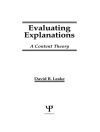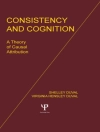This practical guide presents Leahy’s multidimensional model of resistance in cognitive therapy. Richly illustrated with case examples and session vignettes, the book addresses a variety of ways that clients may resist basic therapeutic procedures: noncompliance with agenda setting and homework assignments, splitting transference with other therapists, inappropriate behavior, and premature termination. Underlying processes of resistance are explored, from the desire for validation to risk aversion and self-handicapping. Also highlighted are ways that the therapist’s own responses may inadvertently impede change. Provided are innovative tools for getting treatment back on track, including targeted interventions, in-session ‘experiments, ‘ and questionnaires and graphic models to share with clients.
Daftar Isi
1. Introduction.
I. Theoretical and Conceptual Foundations.
2. Models of Resistance.
3. Resistance to Procedure.
II. Dimensions of Resistance.
4. Validation Resistance.
5. Self-Consistency.
6. Schematic Resistance.
7. Moral Resistance: Compulsive Responsibility.
8. Victim Resistance.
9. Risk Aversion and Depressive Resistance.
10. Self-Handicapping.
III. Cognitive Therapy and Countertransference.
11. Evaluating the Countertransference.
12. Using the Countertransference.
13. Conclusions
Tentang Penulis
Robert L. Leahy, Ph D, is Director of the American Institute for Cognitive Therapy in New York and Clinical Professor of Psychology in the Department of Psychiatry at Weill Cornell Medical College in New York. He is the author or editor of numerous books on cognitive therapy and psychological processes. Dr. Leahy is past president of the Association for Behavioral and Cognitive Therapies, the International Association for Cognitive Psychotherapy, and the Academy of Cognitive and Behavioral Therapies. He is a recipient of the Aaron T. Beck Award for Sustained and Enduring Contributions to Cognitive Therapy.












